Eternity asked four avid readers which books they read and enjoyed the most in 2014. The books could be from any genre, fiction or non-fiction, new or old. Here’s what they came up with!
WA Pastor, Rory Shiner:
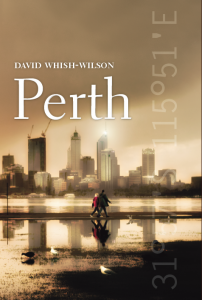 Perth – David Whish-Wilson
Perth – David Whish-Wilson
Perth is David Whish-Wilson’s contribution to the magnificent Newsouth Publishing City Series—a collection of literary non-fiction books about major Australian cities. Whish-Wilson lovingly captures the essence of Perth with all the affection of a hometown boy and all the analytical capacity of someone who has spent many years away. It is a completely gorgeous book. Informative, surprising, sometimes haunting. Beautifully written. Often moving but never sentimental. I love this book.
What’s Best Next: How the Gospel Transforms the Way You Get Things Done – Matt Perman
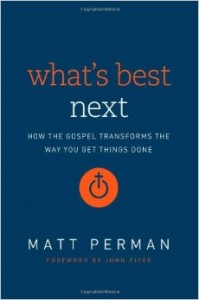 I hit on the David Allen Getting Things Done material a few years ago and, as a naturally disorganised space-cadet, it was, for me, a game changer. Matt Perman’s book more or less assumes Dave Allen as read and from that starting point does (or at least did for me) two things. First, he credibly put the GTD approach into a gospel perspective, not just by baptising it, but by critically evaluating it in light of the gospel of Jesus. Secondly, he lifted my perspective out from simply getting done what is in front of me, to asking if what is in front of me should really be in front of me. Some of it will strike people (including me) as a little over engineered (like personal mission statements), but don’t let that deter you. This is a read that repays the investment many times over.
I hit on the David Allen Getting Things Done material a few years ago and, as a naturally disorganised space-cadet, it was, for me, a game changer. Matt Perman’s book more or less assumes Dave Allen as read and from that starting point does (or at least did for me) two things. First, he credibly put the GTD approach into a gospel perspective, not just by baptising it, but by critically evaluating it in light of the gospel of Jesus. Secondly, he lifted my perspective out from simply getting done what is in front of me, to asking if what is in front of me should really be in front of me. Some of it will strike people (including me) as a little over engineered (like personal mission statements), but don’t let that deter you. This is a read that repays the investment many times over.
Cultural Amnesia: Notes from the Margin of My Time – Clive James
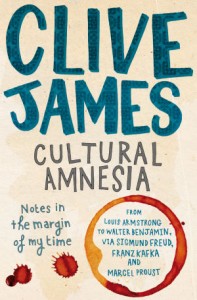 Clive James, the great Australian literary critic and broadcaster, is in the late stages of a cancer that will soon take his life. I have been a huge fan of his writing over the years, mesmerised by his almost impossibly huge comprehension of literature and culture, as well as his command of written English. Cultural Amnesia is James’s notes on the cultural history of (mostly) the twentieth century. Arranged alphabetically, it is comprised of over 100 essays on figures such as Jazz legend Louis Armstrong, author G. K. Chesterton, martyr Sophie Scholl and Nazi propagandist Josef Goebbels. It is a book that lends itself to being dipped in and out of, but I found myself reading it from cover to cover, looking forward to the names I knew, and prepared to be educated by the ones I did not. Digested in this way, it is a delight to read and a guide to the culture of our time by one of its most astute observers.
Clive James, the great Australian literary critic and broadcaster, is in the late stages of a cancer that will soon take his life. I have been a huge fan of his writing over the years, mesmerised by his almost impossibly huge comprehension of literature and culture, as well as his command of written English. Cultural Amnesia is James’s notes on the cultural history of (mostly) the twentieth century. Arranged alphabetically, it is comprised of over 100 essays on figures such as Jazz legend Louis Armstrong, author G. K. Chesterton, martyr Sophie Scholl and Nazi propagandist Josef Goebbels. It is a book that lends itself to being dipped in and out of, but I found myself reading it from cover to cover, looking forward to the names I knew, and prepared to be educated by the ones I did not. Digested in this way, it is a delight to read and a guide to the culture of our time by one of its most astute observers.
Eternity Book Review Editor, Guan Un:
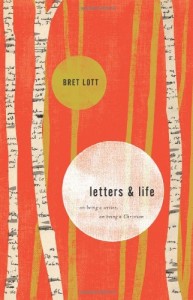 Letters & Life – Bret Lott
Letters & Life – Bret Lott
Sneaking in at the start of the year was Letters and Life by Bret Lott, which I reviewed in January. It’s a singular combination of being a great book about writing, and a great book about a Christian writing. Lott writes with a beautiful style, which makes it apparent why he’s a New York Times bestselling author, and anthologised many times over. His meditations on writing as a Christian are something I’ll treasure for a while to come.
Three Men in a Boat – Jerome K. Jerome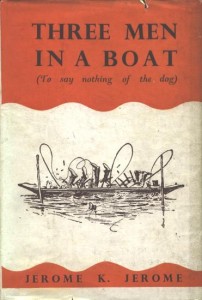
The funniest book of this and most other years was Three Men in a Boat, published way back in 1889. Think of it as an early precursor to Bill Bryson, but funnier and richer: it’s a travelogue of sorts of the titular three men (to say nothing of the dog) on a boat trip down the Thames. The book steps nimbly between passages that are sidesplitting and then is opulent in its description. Best of all, it’s free, and a good reminder that sometimes the jewels have been long since discovered.
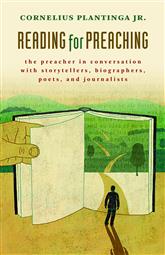 Reading for Preaching – Cornelius Plantinga
Reading for Preaching – Cornelius Plantinga
And the book that made me immediately want to buy multiple copies and distribute them far and wide was Reading for Preaching. Plantinga delivers a rare combination of literary insight, real wisdom, and memorable examples in service of his argument about why good reading makes for better sermons, and better preachers.
Eternity Editor, John Sandeman:
The Canon of Scripture – FF Bruce
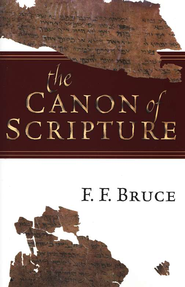
At the Bible Society, you can get asked “tricky” questions which push you into parts of Christian thinking you have not done much homework on. “How did the early church work out which books are in the Bible?” is a good question to be asked. The Evangelical scholar F. F. Bruce gives a good overview of the issues for both the Old Testament and the New, unwinding the history of both. This is the sort of book to be read by someone who wants to look beyond simple answers and travel down the long road of history.
Iron Curtain: The Crushing of Eastern Europe 1944-1956 – Anne Applebaum
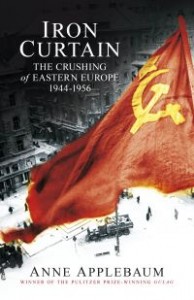
Just how did the Communists take over Eastern Europe? How do societies fall to totalitarian government? Historian Antony Beevor described this book as brilliantly researched, and it is, but for me it was a real page-turner. Seizing control of the police, and secret police was key for a small group to take power. A grim “first mover advantage” that succeeded in squeezing out liberals, moderates and Christianity, but only for a time. Many who suffered were Christians and some of their stories moved me to tears.
Interrupted – Jen Hatmaker
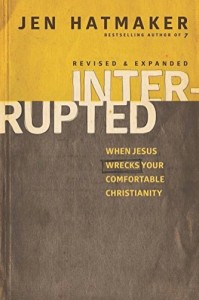
After 26 years as a believer Jen Hatmaker discovers she has missed the point of Christianity. From a comfortable churchy existence, the author of five books was plunged into messy missional church planting. You will not agree with everything that Hatmaker writes in this book-or on her blog. She’s still exploring what it means to be a disciple rather than a Christian consumer. My takeaway from Hatmaker? If you feel like a misfit in your church, maybe its a signal you are being called to follow Jesus in a risky way.
Eternity book reviewer, Kara Martin:
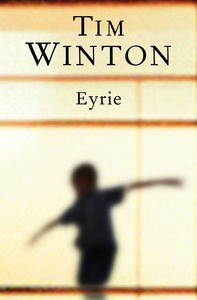 Eyrie – Tim Winton
Eyrie – Tim Winton
I started the year reading this novel by one of my favourite authors, Tim Winton. Not since The Turning collection of short stories has there been such a powerful and attractive portrayal of Christians, in Tom Keely’s parents Nev and Doris: strong, compassionate, courageous, suffering. I read this book in two hours, so drawn in by the suspense. The ending is not as ambiguous as some of Winton’s past novels, but it is not a complete or neat resolution, and some may still feel dissatisfied. Yet, Winton always delivers a slice of messy life, rather than the neat cake we might want or pretend life to be.
Incarnate: The Body of Christ in an Age of Disengagement – Michael Frost
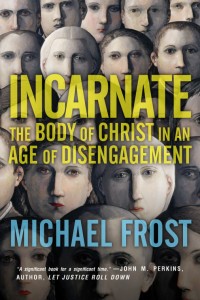 Mike Frost likens the modern western experience of life to being a tourist: always moving, never belonging, interested in collecting experiences while remaining superficial. His summary is that our culture is “rootless, disengaged and screen addicted.” He contrasts that with the gospel. Unfortunately, the church has a focus on an ‘excarnate faith’: a safe faith in our heads. Frost presents an alternative view of ‘healthy religion’ that seeks wisdom rather than argument, keeps learning rather than maintaining blind spots, and releases and welcomes rather than suppressing and isolating.
Mike Frost likens the modern western experience of life to being a tourist: always moving, never belonging, interested in collecting experiences while remaining superficial. His summary is that our culture is “rootless, disengaged and screen addicted.” He contrasts that with the gospel. Unfortunately, the church has a focus on an ‘excarnate faith’: a safe faith in our heads. Frost presents an alternative view of ‘healthy religion’ that seeks wisdom rather than argument, keeps learning rather than maintaining blind spots, and releases and welcomes rather than suppressing and isolating.
A Man Called Ove – Fredrik Backman
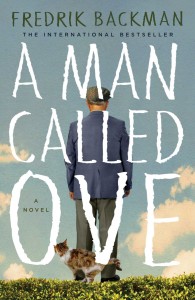 It is not a very promising premise for a novel: Ove is a grumpy old man who hates cats, people and cars driving near his townhouse. He has alienated everyone special to him — even his best friend Rune — except, that is, for his fun-loving and wise wife… who has recently died. Ove reminds me a lot of the old guy from the movie Up. He comes across “in that particular way of a middle-aged man who expects the worthless world outside to disappoint him”. The facilitator of his rediscovery of purpose and relationship is Parvaneh, a diminutive Iranian who has just moved into Ove’s townhouse complex. She sees his value and his neediness, and cleverly weaves his life with her family, requesting tools and driving lessons. This is an irresistible read, and I warmly recommend it.
It is not a very promising premise for a novel: Ove is a grumpy old man who hates cats, people and cars driving near his townhouse. He has alienated everyone special to him — even his best friend Rune — except, that is, for his fun-loving and wise wife… who has recently died. Ove reminds me a lot of the old guy from the movie Up. He comes across “in that particular way of a middle-aged man who expects the worthless world outside to disappoint him”. The facilitator of his rediscovery of purpose and relationship is Parvaneh, a diminutive Iranian who has just moved into Ove’s townhouse complex. She sees his value and his neediness, and cleverly weaves his life with her family, requesting tools and driving lessons. This is an irresistible read, and I warmly recommend it.
Email This Story
Why not send this to a friend?

